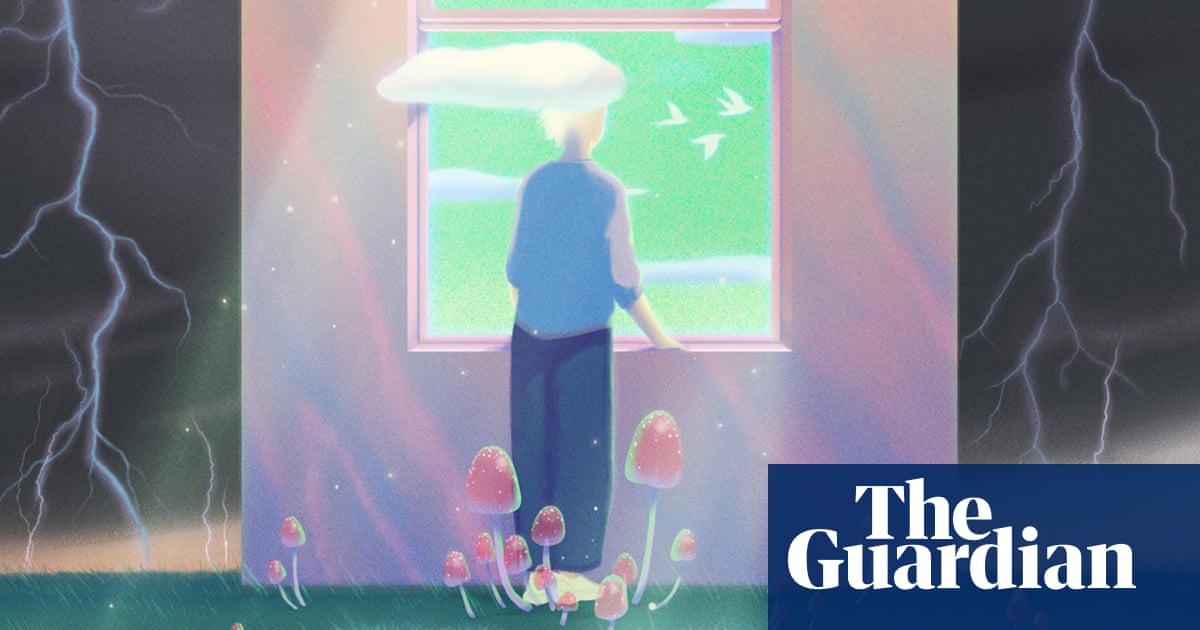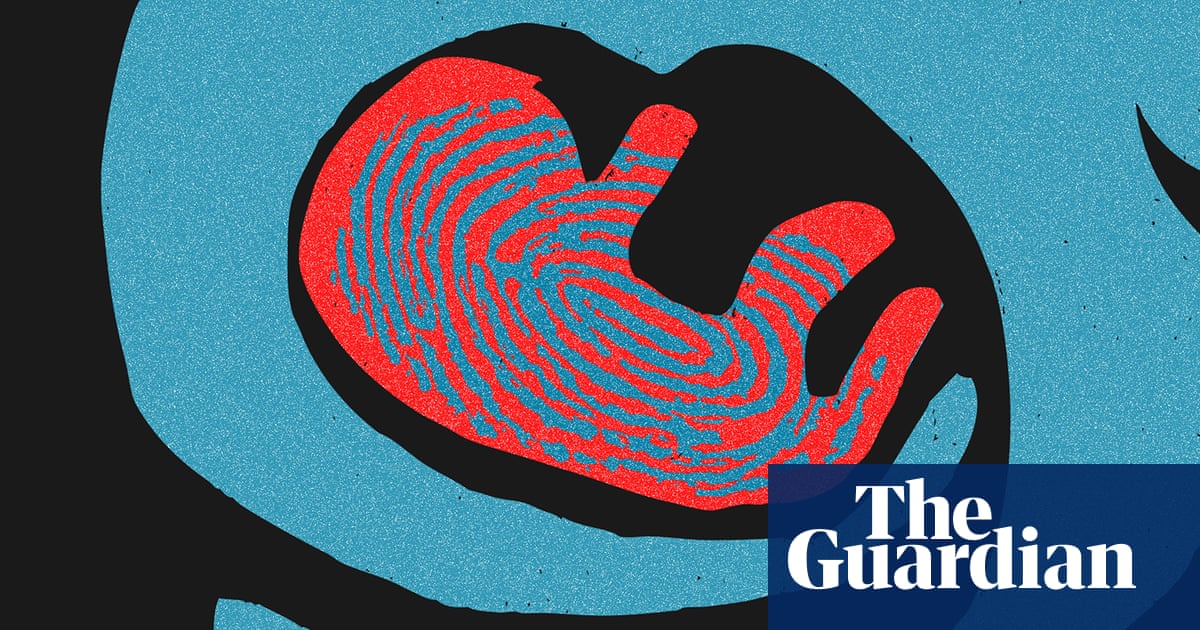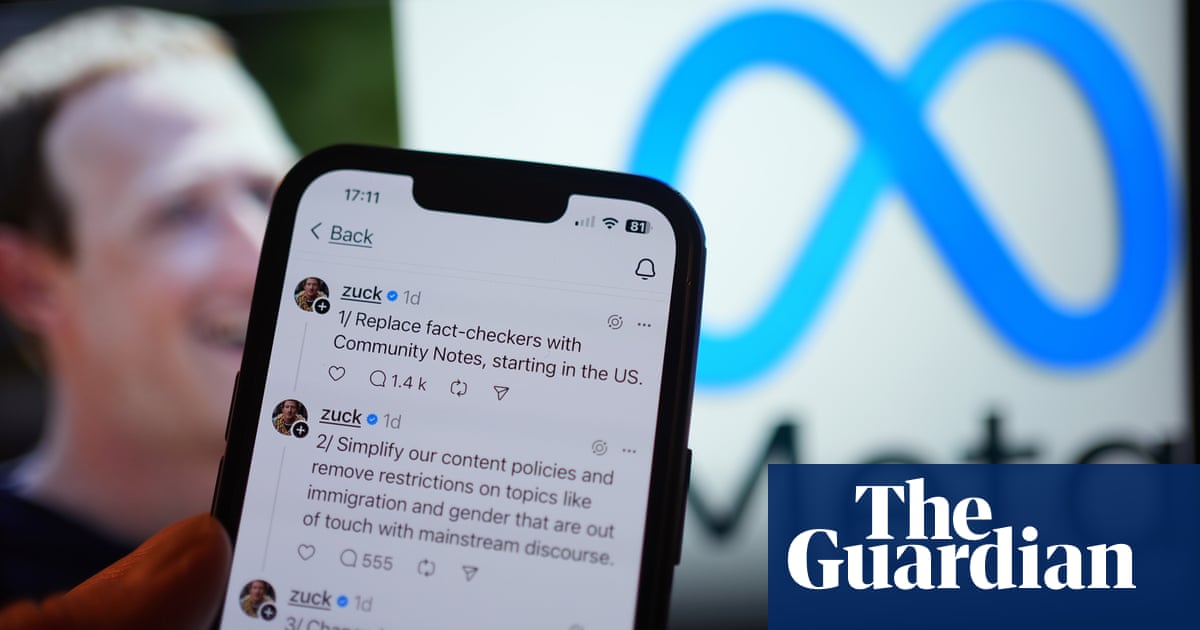Advanced artificial intelligence is to revolutionise fundamental physics and could open a window on to the fate of the universe, according to Cern’s next director general.
Prof Mark Thomson, the British physicist who will assume leadership of Cern on 1 January 2026, says machine learning is paving the way for advances in particle physics that promise to be comparable to the AI-powered prediction of protein structures that earned Google DeepMind scientists a Nobel prize in October.
At the Large Hadron Collider (LHC), he said, similar strategies are being used to detect incredibly rare events that hold the key to how particles came to acquire mass in the first moments after the big bang and whether our universe could be teetering on the brink of a catastrophic collapse.
“These are not incremental improvements,” Thomson said. “These are very, very, very big improvements people are making by adopting really advanced techniques.”
“It’s going to be quite transformative for our field,” he added. “It’s complex data, just like protein folding – that’s an incredibly complex problem – so if you use an incredibly complex technique, like AI, you’re going to win.”
The intervention comes as Cern’s council is making the case for the Future Circular Collider, which at 90km circumference would dwarf the LHC. Some are sceptical given the lack of blockbuster results at the LHC since the landmark discovery of the Higgs boson in 2012 and Germany has described the $17bn proposal as unaffordable. But Thomson said AI has provided fresh impetus to the hunt for new physics at the subatomic scale – and that major discoveries could occur after 2030 when a major upgrade will boost the LHC’s beam intensity by a factor of ten.
This will allow unprecedented observations of the Higgs boson, nicknamed the God particle, that grants mass to other particles and binds the universe together.
“There’s a particular measurement about the Higgs boson that is so fundamental to the nature of the universe,” said Thomson. “What we will be looking at is producing not one Higgs boson but two Higgs bosons at the same time.”
This, he said, will allow scientists to measure how the Higgs particle gives mass to itself for the first time – a phenomenon called Higgs self-coupling.
Two Higgs bosons appear at once so rarely and the particles are so elusive – disintegrating into more familiar particles as soon as they come into existence – that five years ago Thomson said he would have assumed this was beyond the LHC’s capabilities. “Now I’m confident we are going to make a good measurement,” said Thomson.
The strength of Higgs self-coupling is crucial for understanding how, a trillionth of a second after the big bang, a change in the Higgs field resulted in particles suddenly acquiring mass. It could also reveal whether the Higgs field has reached a final, stable resting state or whether another drastic transition could occur in future, a scenario that would see the universe as we know it evaporate almost instantaneously. The Standard Model of physics suggests that this is a possibility – but there is no need for alarm.
after newsletter promotion
“It’s not something that could happen on a timescale that has any relevance even to our stars,” said Dr Matthew McCullough, a theoretical physicist at Cern. “So it doesn’t connect with humanity in that sense. On the other hand, it’s a scientific question – could this happen?”
According to Thomson: “It’s a very deep fundamental property of the universe, one we don’t fully understand. If we saw the Higgs self-coupling being different from our current theory, that that would be another massive, massive discovery. And you don’t know until you’ve made the measurement.”
AI is being injected into every aspect of the LHC operation, from deciding which data to collect to how it should be interpreted. “When the LHC is colliding protons, it’s making around 40m collisions a second and we have to make a decision within a microsecond … which events are something interesting that we want to keep and which to throw away,” said Dr Katharine Leney, who works on the LHC’s Atlas experiment. “We’re already now doing better with the data that we’ve collected than we thought we’d be able to do with 20 times more data ten years ago. So we’ve advanced by 20 years at least. A huge part of this has been down to AI.”
Scientists have long hoped the LHC might be capable of producing dark matter, a substance that is believed to make up a large fraction of the universe. But given that the nature of dark matter is entirely unknown, searching for it is a challenging task. Generative AI could help prise this puzzle apart, according to Thomson. “You can start to ask more complex, open-ended questions,” he said. “Rather than searching for a particular signature, you ask the question: ‘Is there something unexpected in this data?’”

.png) 2 months ago
31
2 months ago
31













































